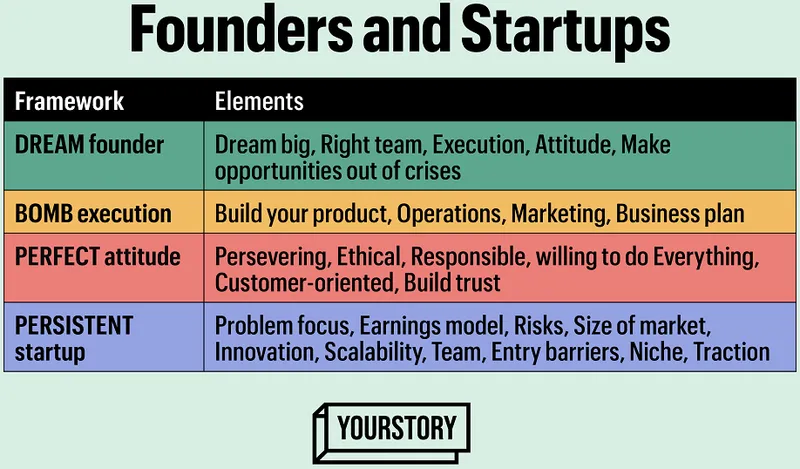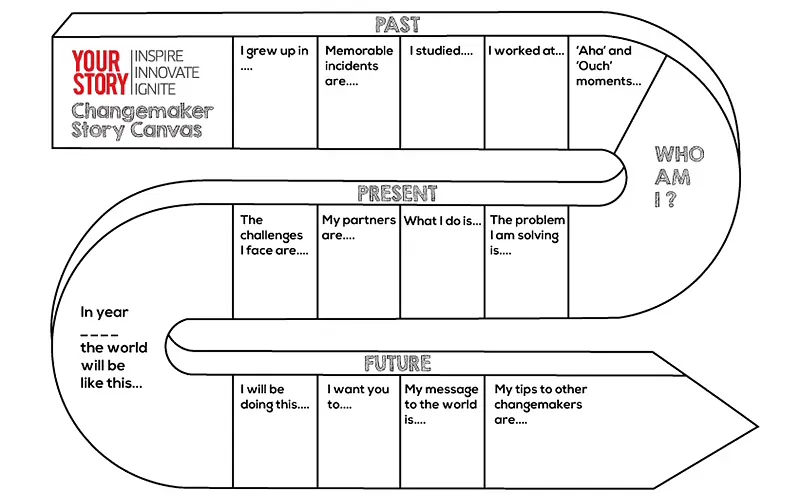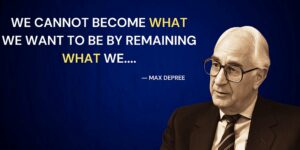Launched in 2012, YourStory’s Book Review section features over 345 titles on creativity, innovation, entrepreneurship, and digital transformation. See also our related columns The Turning Point, Techie Tuesdays, and Storybites.
Aspiring entrepreneurs will find real-life stories and practical frameworks for their journey in this new book, The DREAM Founder: Creating a Successful Startup, by Dhruv Nath.
See these reviews of the related books Startup Compass, Winning Middle India, Startup Launchpad, From Startup to Exit, Fail-safe Startup, The Messy Middle, and Venture Capital Investments.
Dhruv Nath is a professor at the Management Development Institute, Gurgaon. An IIT Delhi graduate, he is also an angel investor and a director with Lead Angels. He was earlier SVP at NIIT. He is the co-author of Funding Your Startup (see my book review here).
See also our picks of ‘Top 10 Books of the Year for Entrepreneurs’ from the past 10 years: 2021, 2020, 2019, 2018, 2017, 2016, 2015, 2014, 2013, and 2012.
Here are some takeaways from this engaging 240-page book, summarised in the table below. The case studies include large startups and smaller players, and are peppered with Dhruv’s signature humour. Lessons from successes as well as failed startups are shared.

Foundations
“You must be prepared to do everything. Lead by example. Get your hands dirty,” Dhruv advises early-stage founders.
Co-founders should have shared visions about destinations and journeys, eg. whether scale and speed at any cost is desirable (even if it means a lot of cash burn), or whether pivoting is an option.
While hiring employees, care should be taken to assess their passion for opportunity, and see how well resumes are prepared. Salary expectations should be in line with existing levels. Exemplary founder traits are punctuality, articulation, commitment, transparency, and resilience.
Dhruv advises founders to empower employees and give them opportunities to learn and execute. Employees can be taken out for snacks or drinks to candidly discuss personal issues, and extra support should be given during crises.
Such concern and empathy can bring teams together like families. At the same time, founders should not become hostage to unreasonable demands. Unethical practices should be immediately confronted and corrected.
In terms of operations, founders should have a clear grasp of unit economics, and the different types of marketing (eg. fixed/variable cost, influencer, commission, referrals). A brand is built over time, and is not just a name, Dhruv clarifies.
The market communication must clearly capture the key message in short succinct phrases, eg. two-minute noodles (Maggi). The offering should solve a clearly articulated pain point. The founder is also the chief salesperson of the startup.
As for fundraising, Dhruv advises founders to be clear about what investors are looking for and what they can put on the table, eg. friends and family (about Rs 20 lakh in total), angels (Rs 50 lakh to Rs 4 crore), VCs (more than Rs 4 crore). Strategic investors are not looking for an exit but for a business extension.

Examples
The book is full of examples of large and small startups, successes as well as failures (some names have been changed in such cases).
Funded by CSR grants, iDream launched with pre-loaded tablet-based e-learning solutions for underfunded schools. Content was prepared in Hindi and English, and the founders came up with clever solutions such as using locked cabinets for charging tablets during off-school hours.
Speedy repairs were supported by back-up tablets. Their Learning Management System (LMS) became an entry barrier to competitors. People were hired for not just skills but their passion (assessed in a Share Your Life questionnaire).
During the pandemic, iDream made the app available at home as well and not just in schools; they also created an app for teachers.
Instamojo launched as a payment mechanism, and then expanded to launching ecommerce storefronts for businesses. They acquired another startup (GetMeAShop) in their journey. The company hires team players, and free-wheeling expression is encouraged in the townhall meetings.
Inspired by locally-made candies during a Western Ghats hike in Karnataka, Vinay Kothari launched GO DESi. He first tested the products at a flea market in Bengaluru. He roped in farmers who would themselves manufacture the candies, per standardised processes and innovations.

During the pandemic, he leveraged his rural bases within Karnataka and withstood lockdowns. Vinay also created compelling online content on yoga, health, and nutrition.
Garima Jain spotted an opportunity in standardised and hygienic beauty care at home, and founded Belita. Bookings were made by apps and the website, and products were delivered in disposable jars. Garima also expanded into the marriage market, and later merged with the Enrich chain of physical parlours as a strategic fit.
Pan-Asian streetfood restaurant Auntie Fung’s pivoted to the cloud kitchen model during the pandemic. They paid special attention to ensure employee livelihoods as well as hygienic food for customers. They even launched another brand, Crazy Bao.
Smartphone repair firm Gadget Restore pivoted to selling refurbished phones to low-income families during the pandemic. They were branded as Grest, and came with a one-year warranty. This was followed by refurbished laptops.
PlanetSpark launched high-quality standardised tech-enabled learning centres for children, tying up with Oyo for rooms in residential areas. Hit by the pandemic, they pivoted to online courses for public speaking, and expanded to international markets as well.
Dhruv profiles other startups that did not succeed, such as an employee suggestion platform (which could easily have been copied by existing players), a rural artisans aggregator (which faced constraints in scaling), and a low-cost air purifier manufacturer (inadequate focus on branding and maintenance).
One founder had to lay off some developers during a slow market patch; by actively helping them find jobs elsewhere, he ensured their appreciation and loyalty.
Dhruv also advised a delivery startup to explore options such as a B2B2C marketing approach to deliver food to factories on the outskirts of town.

Expert insights
The book also features short interviews with outstanding entrepreneurs, sharing hard-earned lessons from their long journeys.
MakeMyTrip founder Deep Kalra cautions entrepreneurs against ‘founderitis’ – the belief of knowing everything and wanting to micromanage. But for team members to develop, they must have freedom and be empowered to learn from mistakes.
“Building a great company is the commitment of a lifetime,” affirms Sanjeev Bikhchandani, Founder of Naukri.com. Founders should be close to customer’s pain points, and be a magnet for employee talent. They should combine thinking at the levels of big picture and small detail.
“You must be willing to challenge your beliefs,” advises Deepinder Goyal, Founder of Zomato, recalling the company’s decision to switch from restaurant reviews to food delivery.
“An arrogant attitude, where you believe you cannot be wrong, can kill the business,” cautions Meena Ganesh, Founder of Portea Medical. Founders must be willing to look at alternatives.
“You’ll have lots of situations when the chips are down, such as the COVID pandemic. It is your passion that will get you through these tough times,” Lead Angels Founder Sushanto Mitra affirms. Founders should be persuasive as well as humble.
In sum, the book provides an inspiring and insightful mix of founder stories and straight talk, and will be a valuable companion for entrepreneurs starting off in their creative journeys.
YourStory has also published the pocketbook ‘Proverbs and Quotes for Entrepreneurs: A World of Inspiration for Startups’ as a creative and motivational guide for innovators (downloadable as apps here: Apple, Android).










![Read more about the article [App Friday] Why mental health app Evolve is one of Google Play’s best apps this year](https://blog.digitalsevaa.com/wp-content/uploads/2021/12/Evolve-01-1638438921924-300x150.png)